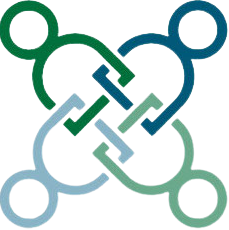
Global Research Agenda for Service-Learning and Community Engagement
Upcoming Sessions
Setting a Global Research Agenda for Service-Learning and Community Engagement: Data Collection
May 14, 2025 from 12:00 PM – 3:00 PM AEST, Virtual Event (Australia)
Purpose: the first of two input sessions for the Australia and New Zealand region on Wednesday, 14th of May from 12:00 PM – 3:00 PM AEST. This session will focus on gathering data and identifying the research questions that should shape future studies in SLCE.
A second session will be held in June (date and time to be confirmed), where we’ll focus on the analysis of the collected data. You are welcome to join one or both sessions—your voice is valuable regardless of whether you participate in the first, the second, or both.
Global Research Agenda at University of California San Diego
May 30, 2025 from 9:00 AM - 4:00 PM PDT, In-Person at UC San Diego (USA)
This session will be a North America-focused meeting where participants will analyze and prioritize research questions that emerged from the data collection forums. actively engage in analyzing, organizing, categorizing, prioritizing a set of research questions and issues that colleagues in the field have submitted during 11 structured research data collection forums held over the last several years.
During the meeting, you will work in a small group, lending your perspectives on how best organize the research questions, what key themes the questions point to, and which themes and research questions should be prioritized. Your analysis and discussions will result in the production of the North America section of the global research agenda for service-learning and community engagement.
Register to confirm your interest in participating.
Background
In 2019, the International Association for Research on Service-Learning and Community Engagement (IARSLCE) launched a series of research data collection forums to gather insights from scholars, practitioners, researchers, and community partners in the field of Service-Learning and Community Engagement (SLCE). These forums were part of a broader global initiative to strengthen the study and practice of SLCE across educational systems. The sessions were designed to identify pressing issues and key research questions that should shape the future of SLCE scholarship. The ultimate goal was to develop a Global Research Agenda to guide research in the field for years to come. Although the 2020 IARSLCE Conference was postponed due to the COVID-19 pandemic, the forums continued virtually, maintaining momentum in this vital work. So far, 25 sessions have been held with over 500 participants from 34 countries representing the global SLCE interest in future direction for the field.
Each gathering is designed to engage scholars, practitioners, and community partners from the region in capturing in their respective agenda the cultural and geographic nuances that best characterize their region’s service-learning and community engagement research and practice.
These sessions bring together practitioners, partners, researchers, and scholars to share their perspectives on the key questions and issues that should guide future research in the field. The meeting will be divided into two parts: 1) Analyzing the Data: Review the research questions and themes identified by participants in previous meetings, with a focus on prioritizing the most relevant issues, and 2) Prioritizing Themes: Participants will collaborate to select specific research questions from prioritized themes that will be featured in the North America Research Agenda.
To date, five regional gatherings have been scheduled: Europe (Belgium, November 2024); Asia (Hong Kong, December 2024); North America (United States, March/April/May 2025); South America (Argentina, June 2025), and Australia (Australia, June 2025. The scheduling of additional gatherings in other regions are underway. All of the regional agendas will be compiled into a Global Research Agenda for Service-Learning and Community Engagement, which will be presented at IARSLCE’s 25 th Anniversary conference in Durban, South Africa in August. At the conference we’ll be ready to present and reflect on the insights gathered throughout this multi-year process to lead IARSLCE and the field forward for another 25 years!
Why You Should Join
Contribute to the Future of SLCE: Your insights will play a key role in shaping the future of SLCE research and practice.
Collaborate with Peers: Engage with colleagues from diverse backgrounds and perspectives to analyze and prioritize the most pressing issues in the field.
Help Finalize Key Findings: Join us as we finalize the research findings that will guide the future direction of SLCE.
We are nearing the completion of this critical process, and your involvement will be invaluable. We hope you will join us for this important session!
